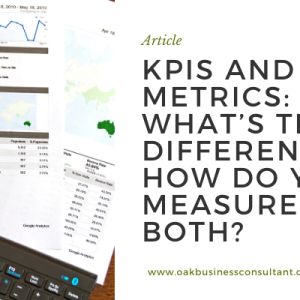Why Budgeting is Crucial to Your Financial Success
Budgeting is Crucial to Your Financial Success: Learn Why?
Many components are crucial to your financial success. But the title here says, “Budgeting is crucial to your financial success”. This means that without budgeting, you cannot even start to think of financial success. Budgeting is the foundation upon which you build your financial future. Therefore, it’s important to understand why budgeting is crucial and how to use it to reach your financial goals.
Budgeting ensures that you control your finances instead of letting them control you. It helps keep track of all your expenses and income. So that you know exactly where your money is going each month. And what you need to pay off first. It also allows for more efficient spending because you are conscious about every purchase or expense. Budgeting makes sure that throughout the process – from planning to implementing – no money goes wasted. So, yes. Budgeting is crucial to your financial success. This article will discuss how budgeting helps you achieve this success.
So, What is Budgeting?
Budgeting is about looking at your income and expenses, categorizing them in importance, and tracking how much you spend each month. It helps you prioritize what to pay first and make smart financial decisions. It also allows for more efficient spending because you know exactly where your money goes each month. Budgeting can help keep track of specific expenses, saving and investments, debt repayment, and unexpected events. When it comes to budgeting for specific expenses like bills or groceries, this means you should determine what you need to pay first before anything else.
10 Reasons Why Budgeting is Crucial to Your Financial Success?
Here are ten reasons why budgeting is crucial to your financial success:

Reason #1:
Budgeting is crucial to your financial success because it allows you to anticipate future financial needs and expenses. By budgeting, you can plan for upcoming expenses and ensure that you have the necessary funds to cover them.
Reason #2:
Budgeting is crucial to your financial success because it gives you a clearer understanding of your cash flow. By tracking your income and expenses, you can see exactly how much money is coming in and going out each month and identify any discrepancies or patterns in your spending.
Reason #3:
Budgeting is crucial to your financial success because it can identify and reduce unnecessary expenses quickly and efficiently. By analyzing your spending, you can pinpoint areas where you may be overspending or wasting money and adjust accordingly.
Reason #4:
Budgeting is crucial to your financial success because it allows you to create a plan for making strategic investments that will benefit your business in the long term. By budgeting for investments and allocating resources more accurately, you can ensure that your money is used to achieve your goals.
Reason #5:
Budgeting is crucial to your financial success because it can track progress toward financial goals over time. By setting financial goals and monitoring your progress, you can see how well you achieve your objectives and make adjustments as necessary.
Reason #6:
Budgeting is crucial to your financial success because it can allocate resources more accurately based on need rather than impulse decisions or guesswork. By budgeting, you can make more informed decisions about how to use your money, rather than just guessing or making decisions based on impulse.
Reason #7:
Budgeting is crucial to your financial success because it helps create consistent patterns in your spending, making it easier to ensure that money is used responsibly without any large unexpected expenditures or losses. By budgeting, you can better predict how you will spend your money and ensure you are using it in the best way possible.
Reason #8:
Budgeting is crucial to your financial success because it gives you greater control when it comes to minimizing tax liabilities for the company by allowing you to plan for deductions and credits throughout the year. By budgeting, you can identify areas where you can reduce your tax liability and adjust accordingly.
Reason #9:
Budgeting is crucial to your financial success because it allows you to establish sound financial habits within the business, such as planning retirement funds or setting up automatic payments for bills and invoices. By budgeting, you can create a system for managing your finances that is both efficient and effective.
Reason #10:
Budgeting is crucial to your financial success because it makes it easier to adjust short-term strategies to focus on larger, longer-term goals that will ultimately benefit your business’s growth and success over time. By budgeting, you can adjust your spending and saving habits to achieve your long-term goals.
Four Purposes of Budgeting for Business Owners

Now that we have discussed all the important reasons why budgeting is crucial to your financial success, let’s move forward with the process. We will share four different instances of budgeting. In fact, these instances or situations are very common, and you should consider them when budgeting.
1. Budgeting for specific expenses
2. Budgeting for savings and investments
3. Budgeting for debt repayment
4. Budgeting for unexpected events
1. Budgeting for Specific Expenses
One of the most important steps you can take while budgeting is breaking down expenses into categories. You can clearly understand where your money is going by budgeting for specific expenses, such as housing, transportation, food, and more. And how much you are spending in each category. This strategy can help you make smarter decisions with your money. Also, it lets you plan for both short-term and long-term financial success.
Why You Should Track Your Spending
The first step in budgeting for specific expenses is tracking where your money goes each month. Tracking your spending will allow you to identify areas where you may be overspending. Or areas that could use an extra boost from some additional funds. An accurate picture of how much money you’re spending in each area can help you decide better what to cut back on. And what to invest more in.
For example, if, after tracking your spending for a few months, it becomes apparent that you’re overspending on dining out or recreational activities, then it might be time to start allocating those funds toward rent or groceries instead. Of course, this isn’t always easy—tracking spending requires discipline—but having a good handle on where your money goes can help ensure that budgeting is crucial to your financial success.
Create a Budget That Works For You
Once you clearly understand where your money goes each month, it’s time to create a budget that works specifically for you. It’s important to set realistic goals when creating a budget so that it’s easy to stick with it in the long run. Implementing a zero-based budget allows you to allocate every dollar to a specific purpose, ensuring optimal use of your financial resources. Your budget, including categories for savings, investments, and discretionary spending, helps prioritize and achieve your financial goals. It’s important to set realistic goals when creating a budget. So that it’s easy to stick with it in the long run. Here are three tips for creating an effective budget:
Start Small
Focus on one expense at a time and work up until you have created budgets for all relevant expenses; this will help keep things manageable and prevent burnout from trying to overhaul everything all at once.
Prioritize
Create budgets based on which expenses are most important and allocate funds accordingly; this will help ensure that the most important items get taken care of first.
Automate
Set up automatic transfers from your checking account into savings so that saving money is done without effort. This will free up more funds for other necessary expenses while allowing progress toward longer-term goals like retirement or college savings plans.
Reducing Expenses After Budgeting
When you create a budget, you can better plan for specific costs and ensure that your spending aligns with your financial goals. However, after you have budgeted for specific expenses, there are still ways to reduce costs and save even more money. Let’s look at some of the best ways to reduce your expenses further.
Needs over Wants
One of the most effective ways to reduce expenses is prioritizing needs over wants. This means taking an honest look at what you need versus what you want and adjusting accordingly. For example, if your rent is too high, consider downsizing or finding a roommate so that it can be more affordable. If you have been eating out often, try meal prepping instead to save money while still having delicious food.
Negotiate Monthly Bills
Another way to reduce expenses after budgeting is to negotiate monthly bills. Many companies will offer discounts if you call and ask—all it takes is five minutes of your time! You may also be able to negotiate lower rates on car insurance or cable bills if you shop around or bundle services together. Additionally, many utility providers will offer discounts for using energy-efficient appliances or switching payment methods from paper bills to automatic payments from your bank account.
Create an Emergency Fund
Creating an emergency fund is another great way to reduce expenses after budgeting for specific costs. An emergency fund should cover 3-6 months of living expenses in case of job loss or medical emergencies—this way, if something unexpected happens, you won’t have to dip into other savings accounts or take on additional debt to pay for it. Having an emergency fund also reduces stress and makes it easier to focus on other aspects of managing your finances without worrying about potential disasters down the line.
Reducing expenses after budgeting can seem daunting. But it doesn’t have to be hard! It takes simple tweaks and adjustments like prioritizing needs over wants, negotiating monthly bills, and creating an emergency fund. With just these few steps, you will be well on your way towards reducing costs effectively—leaving more room in your budget for other important financial goals! Try implementing these tips today and start watching those extra dollars add up.
So, budgeting is crucial to your financial success because it allows you to track where every dollar goes and make more informed decisions with your hard-earned cash. Taking the time to track spending, creating budgets based on priorities, and automating transfers into savings accounts are just some strategies that can help lead to greater financial security over time. With careful planning and smart decision-making, anyone can reach their financial goals faster than they ever thought possible.
2. Budgeting for Savings and Investments
As a CEO or business owner, it is important to ensure that your savings and investments are allocated in a way that will bring you the greatest return on investment. Understanding how to budget for savings and investments will help you make the most of your financial resources. Let’s look at why budgeting for savings and investments is so important.
Budgeting for Savings and Investment Goals
When it comes to budgeting for savings and investments, the first step is to set goals. Consider what kind of returns you want to see on your investment. As well as, when you want to achieve those returns. Setting goals helps determine how much money you need to save each month. It also tells you what investments are necessary to reach those goals. Once you have established your goals, it is time to start budgeting!
Strategizing Your Budget
Creating an effective budget requires strategizing. It is important to understand where your current resources are allocated clearly. Also, what additional resources can you redirect toward savings and investments? You should also consider any external factors affecting your ability to meet certain financial targets. For example, inflation or market fluctuations. This information allows you to create a plan to maximize your investment return. While allowing room for unexpected expenses or losses.
The Role of Risk Management
Risk management plays a crucial role in budgeting for savings and investments. Developing a risk management strategy will help protect you from potential losses while also allowing you to take advantage of opportunities that arise in the market. When creating your risk management strategy, it is important to consider both short-term and long-term risks associated with specific investments to make informed decisions about where to allocate resources within your portfolio.
Budgeting for savings and investments requires careful consideration and planning. It is important to consider several factors to ensure that you allocate resources effectively. For example, maximizing returns on investment and minimizing potential losses due to external factors, such as market fluctuations or inflation rates. Planning ahead helps ensure that CFOs and business owners are making changes with their eyes wide open so they can make educated decisions about their finances, which will pay off later down the road! Taking the time now will lead to greater gains, so start strategizing today.
Tips for Setting Aside Money for Savings and Investments
As a business owner, you know how important it is to set money aside for savings and investments. But how exactly do you do that? Here are some tips to help you start budgeting for savings and investments. The first step in setting aside money for savings and investments is to create a budget. A budget allows you to track your spending and plan to ensure your financial goals are met. There are many different budgeting methods available. So, find the one that works best for your situation. You may find it helpful to review your budget monthly or quarterly to ensure that you’re still on track toward achieving your financial goals.
Set Financial Goals
Once you have created a budget, setting financial goals is important. Decide how much of your income should go towards saving and investing each month, and then make sure that amount is being saved or invested each month. This will help keep you motivated and focused on reaching the financial goals that matter most to you. You may even want to consider automating your monthly savings so that the money goes into the right accounts without extra effort.
Pay Yourself First
One of the best tips for setting aside money for savings and investments is to pay yourself first. As soon as your paycheck comes in, ensure a portion goes directly into an account dedicated solely toward saving or investing before spending it on anything else. This will help ensure that you’re consistently setting aside money each month towards achieving your financial goals rather than just trying to save something at the end of the year when there isn’t much left over after all other expenses have been paid.
Budgeting for savings and investments can initially seem daunting. But with these tips, you can easily set money aside each month towards achieving long-term financial goals. Start by creating a budget based on what works best for you, set realistic financial goals, automate as much as possible, and always remember to pay yourself first! With consistent effort and dedication towards saving or investing regularly, business owners can be sure their finances are where they need them to be to succeed in their ventures now and in the future.
Types of Savings and Investment Options for CFOs and Business Owners
It’s no secret that budgeting for savings and investments is essential for business owners. It’s an important tool to ensure the financial stability of your company, as it allows you to plan ahead and prepare for any possible economic downturns or other unforeseen events. But what types of savings and investment options are available? Let’s take a look at some of the more popular options.

Bonds
Bonds are loans given to corporations, governments, or agencies in exchange for interest payments on predetermined dates. They are considered low-risk investments because they offer guaranteed repayment with interest. However, they also typically have lower returns than stocks or other higher-risk investments.
Stocks
Stocks represent ownership in a company, so when you buy stocks, you become part owner of that company. The value of your stock will fluctuate depending on the company’s performance and the stock market in general. Stocks can be risky but historically have provided higher returns than bonds over long periods.
Mutual Funds
Mutual funds are collections of stocks and bonds managed by investment professionals who decide which securities should be bought and sold to maximize return for investors with different risk tolerances. It provides diversification by investing in various securities at once, reducing overall risk while still providing potential returns higher than those from traditional savings accounts or CDs (certificates of deposit).
Real Estate Investing
Real estate investing involves purchasing property to rent or resell at a profit. This can be lucrative but is often risky due to high up-front costs and unpredictable changes in real estate markets over time.
As we’ve seen, many savings and investment options are available to business owners and CFOs looking to grow their wealth. Each option carries risks and rewards, so it’s important to understand the specifics before jumping into any investment strategy. When done correctly, budgeting for savings and investments can help you build long-term wealth while minimizing risk as much as possible. With careful research and planning, anyone can find an investment strategy that suits their needs.
3. Budgeting for Debt Repayment
As a company CFO, your responsibility is to ensure that debt repayment is a priority. This includes ensuring that you clearly understand the company’s financial obligations and creating a plan to manage the debt repayment effectively. A well-thought-out strategy can help to minimize interest costs and create financial stability for the business. Let’s explore how budgeting for debt repayment works, some tips for creating a plan, and strategies for managing high-interest debt.
Debt Repayment Strategies for CFOs
The first step in budgeting for debt repayment is getting an accurate picture of the company’s financial obligations. Start by gathering your accounts with lenders, including credit cards, loans, and lines of credit. Once you have this information, analyze each account to determine the total amount owed, the monthly payment amount, and the interest rate associated with each account. This will give you a better idea of what you must pay off first. As well as what accounts have higher interest rates you should prioritize when repaying debt.
Creating a Plan
Once you have gathered all your accounts and analyzed them individually, it’s time to create a plan. The best way to do this is by creating a budget specifically for debt repayment. Start by subtracting all your minimum payments due each month and subtracting that from your net income (or cash flow). The difference should be allocated towards paying off one or more debts ahead of schedule or paying extra on an account with higher interest rates to reduce it faster. This strategy can save you money in the long run since lower balances mean lower overall interest payments over time.
Strategies For Managing High-Interest Debt
If you are dealing with high-interest credit card or loan debt, you can use several strategies to make sure it is paid off quickly while minimizing interest charges. One option is transferring the balance from one high-interest card to another with a zero percent interest rate introductory offer; this allows you some breathing room as you pay off the balance without having to worry about additional fees or penalties from late payments or overdue balances. Another option is consolidating multiple loans into one loan with a lower overall interest rate; this helps simplify payments while reducing overall costs simultaneously. Additionally, negotiating reduced settlement terms on existing debts may help reduce overall expenses if done correctly and strategically.
Budgeting for debt repayment should be taken seriously by any company CFO looking to maintain financial stability within their organization. Understanding how much money is owed and analyzing individual accounts can help inform decisions regarding how best to pay down debts quickly while minimizing costs associated with high-interest rates or late fees associated with missed payments. Creating a dedicated budget specifically designed for debt repayment can help focus efforts on reducing principal balances faster while also saving money in the long run through reduced interest charges over time; consolidating loans or transferring balances may also be beneficial depending upon individual circumstances and goals associated with paying off existing debts quickly and efficiently. With careful planning, CFOs can create an effective strategy that meets both short-term goals related to cash flow management and longer-term goals related to reducing outstanding principal balances quickly while still maintaining sufficient liquidity necessary for day-to-day operations within their organization.
4. Budgeting for Unexpected Expenses
As a Chief Financial Officer (CFO), you know that planning ahead is key to success. That’s why it’s important to plan for unexpected events such as job loss, medical emergencies, or natural disasters. While budgeting for these events may seem impossible at first, there are ways you can create an effective plan and build your emergency fund while still managing your financial obligations.
Creating an Emergency Fund
The best way to prepare yourself financially for any unexpected event is by building an emergency fund. This fund should be separate from your regular savings and cover up to six months of living expenses in the event of a job loss or other crisis. To build this fund, start by setting reasonable goals and creating a budget that allows you to put aside money each month. It’s also important to think long-term when building this fund; aim for saving at least 10% of your income over time.
Managing Unexpected Expenses
When faced with unexpected expenses, it’s important not to panic and focus on strategies to help you manage them. First, prioritize the most pressing bills and pay those first; the rest can wait until you have enough funds saved up or until after the emergency has passed. You may also want to consider negotiating payment terms with creditors; many companies understand that life happens and are willing to work with their customers in times of need. Finally, if all else fails, don’t be afraid to seek assistance from family or social services.
As a CFO, it’s important to be prepared for unexpected events by having an emergency fund and responsibly managing any sudden expenses. Start by setting reasonable goals and creating a budget that allows you to put aside money each month into your emergency fund. Once this is done, prioritize payments whenever possible and negotiate payment terms if needed. Finally, don’t be afraid to seek assistance if necessary—it could be the difference between financial stability and chaos in times of crisis.
Professional assistance from Oak Business Consultant can help you create a budget and strategize to save money in the long run. With our expert advice, you can be confident that your finances are in good hands.


























